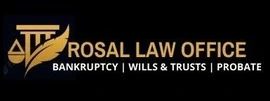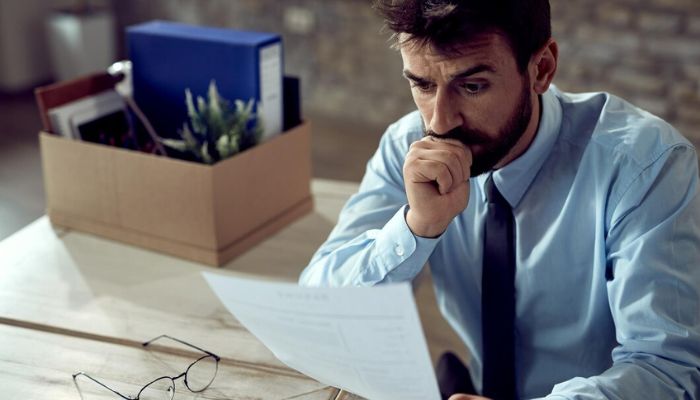Filing for bankruptcy is a significant decision that can impact your financial future. For individuals struggling with debt, Chapter 13 bankruptcy offers a way to reorganize their finances and create a manageable repayment plan. However, many people wonder if Chapter 13 bankruptcy eliminates all debts. The answer is both yes and no. This blog will explore which debts Chapter 13 bankruptcy can wipe out, which debts remain, and how the process works.
What is Chapter 13 Bankruptcy?
Chapter 13 bankruptcy, also known as a wage earner’s plan, allows individuals with regular income to develop a plan to repay all or part of their debts over three to five years. Unlike Chapter 7 bankruptcy, which involves liquidating assets to pay off debts, Chapter 13 focuses on debt reorganization. This option is particularly suitable for those who want to keep valuable assets, such as a home or car.
The repayment plan under Chapter 13 is based on the debtor’s income, expenses, and the types of debts owed. The court approves this plan, and the debtor makes regular payments to a trustee, who then distributes the funds to creditors.
Role of a Bankruptcy Attorney
Navigating bankruptcy laws can be complex. A bankruptcy attorney plays a crucial role in guiding individuals through the Chapter 13 process. They help in preparing necessary documents, negotiating with creditors, and ensuring that the repayment plan complies with legal requirements. With the help of a qualified lawyer, debtors can avoid common pitfalls and achieve a successful outcome.
Debts Discharged Under Chapter 13 Bankruptcy
Chapter 13 bankruptcy can discharge a variety of debts. Once the debtor completes the repayment plan, the court may discharge remaining eligible debts. These include:
- Credit Card Debt: Unsecured credit card debts are typically discharged after successful plan completion.
- Medical Bills: Outstanding medical expenses can be wiped out.
- Personal Loans: Unsecured personal loans are generally eligible for discharge.
- Utility Bills: Past-due utility payments may be discharged.
- Certain Legal Obligations: Debts arising from lease agreements and some court judgments may be discharged.
Discharging these debts provides significant relief and allows debtors to rebuild their financial lives.
Debts Not Discharged Under Chapter 13 Bankruptcy
While Chapter 13 bankruptcy can discharge many debts, certain obligations remain the debtor’s responsibility. These include:
- Secured Debts: Mortgages and auto loans must be paid if the debtor wants to retain the property.
- Student Loans: Generally, student loans are not dischargeable unless the debtor can prove undue hardship, which is challenging.
- Child Support and Alimony: Family obligations must continue to be paid in full.
- Certain Tax Debts: Recent income tax debts and other specific taxes are typically not dischargeable.
- Debts from Fraud or Malicious Acts: Debts resulting from fraudulent activities, embezzlement, or willful harm are not discharged.
- Criminal Fines and Restitution: Court-ordered fines and restitution must be paid.
Understanding which debts remain ensures that debtors have realistic expectations about the outcomes of filing for Chapter 13 bankruptcy.
Special Considerations in Chapter 13 Bankruptcy
Chapter 13 offers benefits not available in other forms of bankruptcy. For example, it can stop foreclosure proceedings and allow debtors to catch up on missed mortgage payments. Additionally, Chapter 13 may allow the debtor to reschedule secured debts (other than a mortgage for a primary residence) and extend them over the life of the repayment plan. This can reduce the total amount paid monthly.
However, the process requires strict adherence to the court-approved plan. Missing payments can lead to case dismissal or conversion to Chapter 7 bankruptcy, which may result in asset liquidation.
The Importance of Legal Guidance
Given the complexities of bankruptcy law, consulting a qualified lawyer is essential. They can help evaluate whether Chapter 13 is the best option, ensure proper plan formulation, and provide representation in court. A knowledgeable attorney can also help address creditor objections and assist with modifications if financial circumstances change during the repayment period.
How Chapter 13 Bankruptcy Affects Credit?
Filing for Chapter 13 bankruptcy affects credit scores. The bankruptcy remains on the debtor’s credit report for seven years from the filing date. However, successfully completing the repayment plan and receiving a discharge can positively impact creditworthiness. Over time, debtors can rebuild their credit by making timely payments and managing finances responsibly.
Rebuilding Financial Stability After Chapter 13 Bankruptcy
After receiving a discharge, individuals can take steps to rebuild their financial lives:
- Create a Budget: Developing a realistic budget helps manage expenses and avoid future debt problems.
- Establish an Emergency Fund: Saving for unexpected expenses prevents reliance on credit.
- Use Credit Responsibly: Secured credit cards or small loans, when managed well, can help rebuild credit scores.
- Monitor Credit Reports: Regularly reviewing credit reports ensures accuracy and helps track progress.
Conclusion
While Chapter 13 bankruptcy can discharge many types of debts, it does not wipe out all obligations. Understanding which debts remain and which are eliminated is crucial for making informed financial decisions. Essential debts like student loans, child support, and certain taxes will continue to be the debtor’s responsibility.
The process of filing for Chapter 13 bankruptcy can be complex, but with the guidance of a skilled bankruptcy attorney and a reliable lawyer, individuals can navigate the process more smoothly and achieve a fresh financial start. Although the road to financial recovery may be challenging, it is achievable with careful planning, disciplined financial management, and a commitment to fulfilling repayment obligations.
Ultimately, Chapter 13 bankruptcy offers a pathway to regain control over one’s finances, providing a structured approach to repaying debts while protecting essential assets. For those facing overwhelming debt, understanding the scope and limitations of Chapter 13 bankruptcy is the first step toward a brighter financial future.

